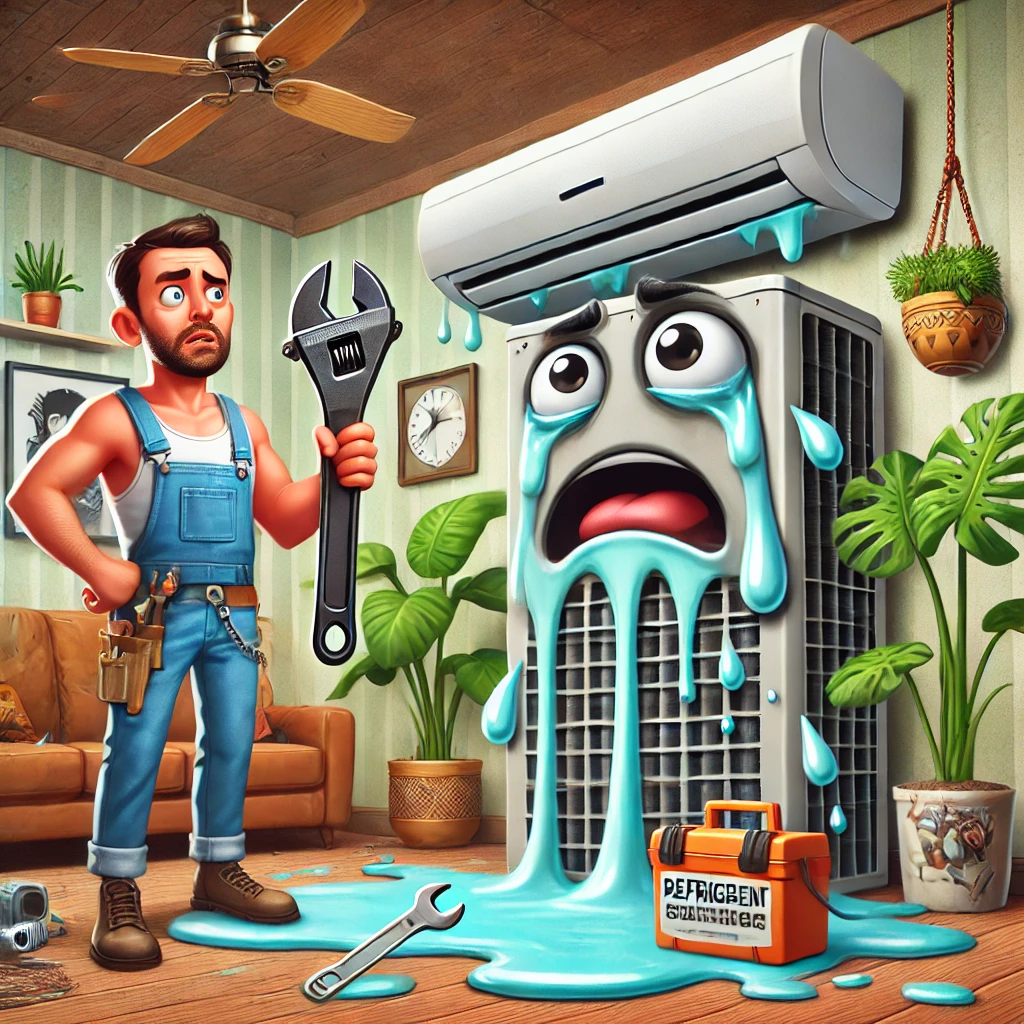When your air conditioner leaks refrigerant, it can severely impact its cooling performance and energy efficiency. At ZapFixers, we understand how frustrating it is to deal with malfunctioning cooling systems, especially in the Florida heat. In this guide, we’ll explore the causes, symptoms, risks, and solutions for refrigerant leaks, helping you identify the problem and take action to restore your AC unit.
Signs Your Air Conditioner is Leaking Refrigerant
Detecting refrigerant leaks early is essential to prevent further damage. Here are some of the common symptoms:
- AC Not Cooling Properly
A refrigerant leak reduces the system’s ability to absorb and release heat, leading to uneven or insufficient cooling. - Higher Energy Bills
Your AC may run longer to compensate for lost refrigerant, causing a noticeable increase in energy consumption. - Hissing or Bubbling Sounds
A hissing noise could indicate a refrigerant leak in the lines, while bubbling sounds suggest air entering the system. - Ice on Evaporator Coils
When refrigerant levels are too low, the evaporator coil can freeze, leading to frost or ice buildup. - Warm Air Coming from Vents
If your air conditioner blows warm air despite being set to cool, it may indicate a refrigerant issue.
Common Causes of Refrigerant Leaks
Several factors can cause your AC to leak refrigerant:
- Wear and Tear on Refrigerant Lines
Over time, the copper coils or joints in your AC system can deteriorate, resulting in small leaks. - Factory Defects
Manufacturing defects may cause poor welding or faulty components, leading to refrigerant loss over time. - Corrosion of Metal Components
Formic acid buildup inside coils can cause corrosion, weakening the refrigerant lines. - Physical Damage
Vibrations, improper installation, or accidental damage can cause cracks in the lines.
Risks of Ignoring Refrigerant Leaks
Ignoring refrigerant leaks can cause multiple issues, including:
- Compressor Failure
Low refrigerant puts excess strain on the compressor, potentially leading to expensive repairs. - Environmental Damage
Some refrigerants are harmful to the environment if they escape into the air. - Decreased Lifespan of the AC Unit
Operating with insufficient refrigerant can cause the entire system to wear out faster.
How to Fix a Refrigerant Leak
Repairing refrigerant leaks requires professional expertise to ensure the job is done safely and correctly. Here’s what you can expect when hiring ZapFixers for the repair:
- Leak Detection Test
Our technicians use advanced tools to locate leaks, whether they are in the coils, pipes, or fittings. - Repairing or Replacing Faulty Components
We’ll repair minor leaks or replace damaged parts if necessary to prevent future issues. - Recharging the System
After fixing the leak, we will refill your AC unit with the appropriate refrigerant to restore cooling efficiency. - Performance Testing
Finally, we test the system to ensure everything is working efficiently and the refrigerant levels are correct.
Preventing Refrigerant Leaks
To avoid refrigerant leaks in the future, follow these maintenance tips:
- Schedule Regular Maintenance
Annual tune-ups allow technicians to inspect your system for early signs of leaks. - Monitor Refrigerant Levels
Keeping an eye on refrigerant levels helps you catch leaks before they worsen. - Clean and Inspect Coils
Dirt buildup on coils can cause corrosion over time, leading to leaks.
